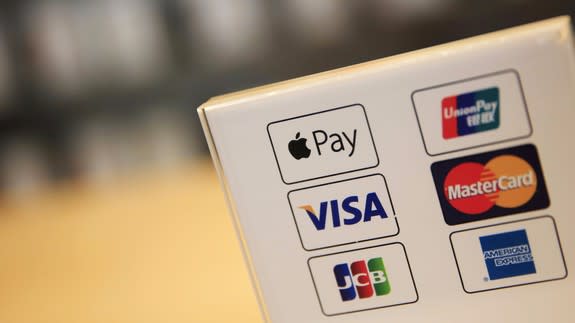Apple's fight with big banks is getting even nastier, and it was already nasty

Apple is not happy, not happy at all.
In its latest submission to Australia's competition watchdog, the company accused some of Australia's largest banks of conspiring to delay the entry of Apple Pay into Australia.
Bendigo and Adelaide Bank, the Commonwealth Bank of Australia, National Australia Bank and Westpac applied to the Australian Competition and Consumer Commission (ACCC) in July 2016 to allow them to negotiate collectively with Apple over its mobile wallet. Of Australia's top four banks, ANZ is the only one to currently offer Apple Pay.
SEE ALSO: MashTalk: How Apple's lawsuit against Qualcomm could affect future iPhones
In a November draft decision, the ACCC indicated it would deny the bank's joint application, suggesting its benefits were "uncertain." Since then, the banks and Apple, as well as other interested parties, have been exchanging a flurry of submissions to press their case.
The banks have consistently argued that Apple's refusal to allow their own banking apps to use iPhone hardware is unprecedented. In particular, they want access to the smartphone's near-field communication (NFC) technology, which allows contactless transactions.
And they have some local support. Fintech company Tyro Payments spoke up for the banks in its latest submission. It said denying third party access to the NFC function is "particularly effective in stifling innovation and competition" given it's the only ubiquitous connection option across payment terminals.
Apple, for its part, has not minced words from the start. Accusing the banks of being a "cartel" and noting that the banks together accounted for the lion's share of Australian credit card balances and household deposits, Apple argued that opening up its hardware was a security risk.
In its most recent submission, Apple also suggested the fight was not really about NFC access. Instead, it said the banks were simply trying to add to their bottom line.
It proposed the banks were trying to open up "a new revenue stream in the digital payments age" by negotiating together so they could charge consumers a fee to use the mobile wallet. While Apple charges banks a fee for Apple Pay transactions, it does not want that fee passed on to consumers.
"It is fundamentally about the applicant banks avoiding paying Apple fees for use of Apple Pay ... or specifically charging their cardholders for that use to discourage consumer use of Apple Pay and thereby reduce competition with their own proprietary wallets," it wrote.
The company also said it was "concerned" the banks were deliberately using the ACCC application process to delay the expansion of Apple Pay into Australia.
But a spokesperson from the applicant banks responded to Apple's comments Tuesday, saying their application "has never been about preventing Apple Pay from coming to Australia or reducing competition between wallets. Apple's statement that the application is fundamentally about an objection to the fees that Apple wish to be given rather than NFC access, is incorrect and unsupported."
Australians are prolific users of tap-and-go payments, with 59 percent having made a purchase using contactless cards, but mobile payments are yet to take off. Whatever the ACCC's decision, it's sure to be closely watched globally by financial institutions struggling to shore up their digital future.

 Yahoo Finance
Yahoo Finance 